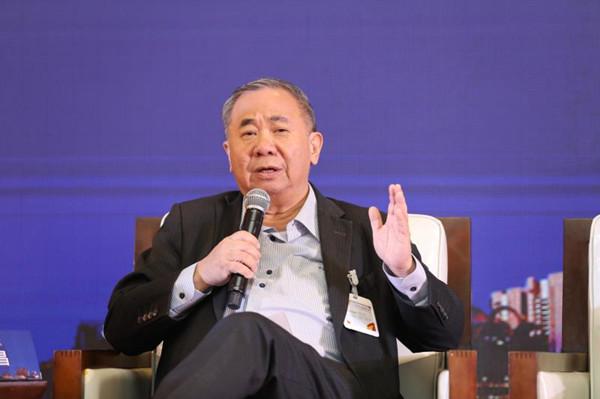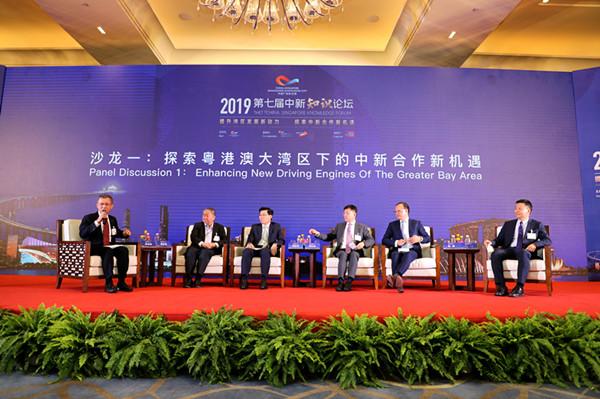The 7th China-Singapore Knowledge Forum kicked off in Guangzhou on November 18th. Being the only high-end forum that rotates between China and Singapore, it attracted government, enterprise and academic representatives that have close partnership between two countries to participate in the conversation and deepen understanding of each other.
Organized by the Sino-Singapore Guangzhou Knowledge City, the forum included two panel discussions respectively on the new driving engines for Guangdong-Hong Kong-Macao Greater Bay Area and new opportunities for China-Singapore collaboration. It invited KOLs from high-profile enterprises and institutions such as Huawei and National University of Singapore (NUS), to share their stories and perspectives.
Freddy Boey, Deputy President of the NUS, said, “we have great demands for markets, especially the market of Guangzhou, so settling in the Knowledge City is a wise decision. It has a strong focus on innovation and IP right protection, which provides us with a ‘world-class environment’ to support the construction of the world-class innovative system.”

Freddy Boey, Deputy President of the NUS [Photo\Chen Jianlong]
Freddy added NUS emphasizes talent training and will help foster 3400 high-end innovative professionals in the knowledge city in the next ten years.
Liu Wei, Chairman of PCI, echoed that China has a very good environment for technological innovation, especially in terms of new technology application. “Our company is dedicated to smart transportation system. And we successfully applied our technology to the Guangzhou metro and built the global first smart metro station equipped with AI technology. The station will link with the Knowledge City once put into use by the end of this year.”

[Photo\Chen Jianlong]
Peng Bo, Senior Vice President of Huawei, considered the development of digitalization will inevitably lead to cross-region and cross-sector collaboration under the context of Industry 4.0.
“China and Singapore are complementary in lots of fields so that we can cooperate and learn from each other,” he said, “for us, Singapore offers smart city consultation and related services in more than 200 cities worldwide and it has strengths in venture capital investment, incubating and international talent pool fostering, “he said.
Lee Yi Shyan, Chairman of Business China, suggested that the Knowledge City could further investment in four areas, that is, technology; IP right protection; professional services such as financial services, accounting, legal services, marketing and human resources; international talent pool construction.
The Knowledge City was established in 2010 and upgraded as a national level bilateral project in 2018. According to statistics, a total number of 1605 enterprises and RMB 126 billion has been registered in the Knowledge City by the middle of October while a series of major projects in such fields as ICT, high-end equipment manufacturing and bio-tech, are under construction.